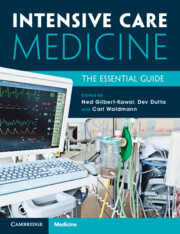Book contents
- Intensive Care Medicine
- Intensive Care Medicine
- Copyright page
- Dedication
- Dedication
- Epigraph
- Contents
- Contributors
- Preface
- Foreword
- Abbreviations
- Section 1 Resuscitation and Management of the Acutely Ill Patient
- Section 2 Diagnosis, Assessment, Investigation, Monitoring and Data Interpretation
- Domain 3 Disease Management: Recognition, Causes and Management
- Section 4 Therapeutic Interventions and Organ Support
- Domain 5 Practical Procedures
- Section 6 Perioperative Care
- Section 7 Comfort and Recovery
- Post-intensive Care Syndrome
- Prevention of Physical and Psychosocial Consequences Following Critical Care Admission
- Structured Rehabilitation Plans
- Long-Term Follow-Up
- Cost Implications
- Introduction
- Importance of Pain Management
- Pain Aetiology in the ICU
- Assessment of Pain in the ICU
- Management
- Procedural Pain
- Sedation
- Neuromuscular Blockade
- Assessment of ICU-AW
- Prevention and Rehabilitation of ICU-AW
- The ABCDEF Bundle
- Rehabilitation after Critical Illness
- Conclusion
- Introduction
- What is Meant by Recovery after Critical Illness?
- Models of Follow-Up Care
- Follow-Up Clinic Consultation
- Follow-Up Clinic Interventions
- Future Directions
- 7.1 How to Identify and Attempt to Minimise the Physical and Psychosocial Consequences of Critical Illness for Patients and Families?
- 7.2 Principles of Assessment, Prevention and Treatment of Pain in Intensive Care
- 7.3 Sedation and Neuromuscular Blockade in Intensive Care
- 7.4 Intensive Care Unit-Acquired Weakness and Physical Rehabilitation
- 7.5 Follow-Up after Critical Illness
- Section 8 End-of-Life Care
- Section 9 Paediatric Care
- Section 10 Transport
- Section 11 Professionalism, Patient Safety, Governance and Health Systems Management
- Index
- References
7.5 - Follow-Up after Critical Illness
from Section 7 - Comfort and Recovery
Published online by Cambridge University Press: 27 July 2023
- Intensive Care Medicine
- Intensive Care Medicine
- Copyright page
- Dedication
- Dedication
- Epigraph
- Contents
- Contributors
- Preface
- Foreword
- Abbreviations
- Section 1 Resuscitation and Management of the Acutely Ill Patient
- Section 2 Diagnosis, Assessment, Investigation, Monitoring and Data Interpretation
- Domain 3 Disease Management: Recognition, Causes and Management
- Section 4 Therapeutic Interventions and Organ Support
- Domain 5 Practical Procedures
- Section 6 Perioperative Care
- Section 7 Comfort and Recovery
- Post-intensive Care Syndrome
- Prevention of Physical and Psychosocial Consequences Following Critical Care Admission
- Structured Rehabilitation Plans
- Long-Term Follow-Up
- Cost Implications
- Introduction
- Importance of Pain Management
- Pain Aetiology in the ICU
- Assessment of Pain in the ICU
- Management
- Procedural Pain
- Sedation
- Neuromuscular Blockade
- Assessment of ICU-AW
- Prevention and Rehabilitation of ICU-AW
- The ABCDEF Bundle
- Rehabilitation after Critical Illness
- Conclusion
- Introduction
- What is Meant by Recovery after Critical Illness?
- Models of Follow-Up Care
- Follow-Up Clinic Consultation
- Follow-Up Clinic Interventions
- Future Directions
- 7.1 How to Identify and Attempt to Minimise the Physical and Psychosocial Consequences of Critical Illness for Patients and Families?
- 7.2 Principles of Assessment, Prevention and Treatment of Pain in Intensive Care
- 7.3 Sedation and Neuromuscular Blockade in Intensive Care
- 7.4 Intensive Care Unit-Acquired Weakness and Physical Rehabilitation
- 7.5 Follow-Up after Critical Illness
- Section 8 End-of-Life Care
- Section 9 Paediatric Care
- Section 10 Transport
- Section 11 Professionalism, Patient Safety, Governance and Health Systems Management
- Index
- References
Summary
Key Learning Points
1. Post-intensive care syndrome (PICS) affects between 40 and 60 per cent of critical illness survivors, and manifests as new impairments of cognitive, psychological and/or physical function.
2. Major risk factors for PICS include >72 hours of mechanical ventilation, prolonged ICU delirium, maternal/obstetric critical illness and baseline physical and mental health co-morbidities.
3. The typical service model of follow-up care includes a face-to-face outpatient review approximately 2–3 months following discharge home, with follow-up visits at 6 and 12 months where required.
4. Physical, cognitive, psychological and global clinical outcomes should be evaluated using domain-specific tools and assessments.
5. Critical care recovery clinics provide an important opportunity to reconnect with patients and ‘re-humanise’ the ICU care delivered.
- Type
- Chapter
- Information
- Intensive Care MedicineThe Essential Guide, pp. 666 - 670Publisher: Cambridge University PressPrint publication year: 2021



